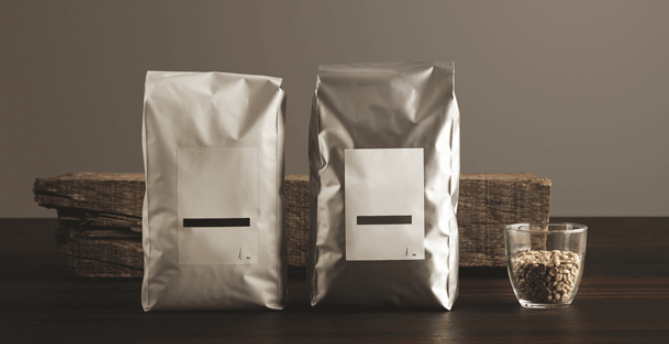Bagged packaged goods are made extra durable to protect the product inside. They are an environmentally friendly option that fits the needs of small businesses and are convenient. In addition, bagged packaged goods are easy to carry and don’t require additional space in your car. In addition, bagged packaged goods are a good choice for those on a tight budget. In this article, we’ll explore why bagged packaged goods are a great choice for small businesses.
Also Read: 7 Ways to Navigate to the Closest Grocery Store
Bagged packaged goods are made extra strong to protect the product
The packaging of packaged products in bags is known as secondary packaging. Secondary packaging is usually made from cardboard, paperboard cartoons, or plastic crates. This type of packaging is best for transporting goods and is a second layer over primary packaging. Secondary packaging can also be called transit or bulk packaging. Bagged packaged goods are made extra strong to prevent damage or loss of the product. They are also water and gas resistant.
Thermoform packaging involves transforming plastic into rigid shapes. It is used for luxury products, or for sensitive products that need to remain safe. Expanded PVC or EVA is also used to create rigid packages. Other forms of packaging include crates and pallets. Crates are generally made of high-density plastic, and are great for transporting goods. These types of packaging are lightweight and easy to transport.
Another benefit of bagged packaged goods is their longevity. This type of packaging protects the product from moisture and air exposure, which can ruin the product over time. In addition, a bagged package doesn’t allow the product to become contaminated with other items in the store. This protects both the product and the brand, and makes the process of transporting them easier. This is especially true in countries where space is limited.
They are convenient
When traveling, bagged packaged goods are an excellent option. Most of these bags are resealable, allowing you to carry groceries in them and reuse them over. Additionally, they are often lightweight and made from recyclable materials. By using reusable bags, you can minimize the amount of packaging you need, reducing waste and promoting a greener lifestyle. Listed below are some benefits of reusable bags:
Consumers love bagged packaged goods because they are easier to transport, don’t require refrigeration, and look professional. In fact, many consumers are now choosing to purchase their products in these bags rather than individually. These bags can help consumers save money and time, as they make the process of buying groceries much simpler. Moreover, bagged packaged goods also make it easy for consumers to shop for a variety of products at once. This convenience factor makes consumers more likely to buy products in bagged packaging, and can also help them avoid buying multiple items from one store.
Compared to loosely packed products, bagged packaged goods last longer. This is because the package is protected from air and moisture, which degrade products over time. Additionally, products are protected from contamination when they are packed in bags. Additionally, bagged goods are more easily recyclable than loose ones, which is great for small stores. If you are a retailer, bagged packaged goods can help you save money and time while maintaining a clean, organized store.
While buying bagged packaged goods, you should always consider how many items you plan to buy. One of the most important factors is size. Bagged goods can be used for anything, from snacks to fruits and vegetables. Additionally, resealing bags allow you to reuse them. Furthermore, they are easier to display and merchandise than unpackaged goods. So, resealing is a big plus when buying bagged packaged goods.
Consumers prefer bagged packaged goods over loose produce due to their many benefits. They can be reusable, lightweight, and can hold just about any type of food. Furthermore, bagged products are also more affordable than loose products. These advantages have prompted many retailers to choose bagged packaged goods over loose produce. Bagged packaged goods are convenient and attractive, and most retail businesses choose to use them as their primary packaging. And there are other reasons for choosing them.
They are good for the environment
Bagged packaged goods are an excellent choice for packaging your goods because they can be reused by customers. Unlike other types of packaging, bagged goods are recyclable, making them a great option for the environment. Fortunately, most types of packaging materials are readily available, including cloth carry bags. Besides, knowing what to look for when buying a product will help you select better options. Here are a few of them.
One of the biggest advantages of bagged packaged goods is that they last longer than their loose counterparts. This is because they are sealed in bags, and are therefore protected from air and moisture, two elements that degrade products over time. Plus, these packages do not allow the products to be contaminated by other products in the store. This eliminates one of the biggest concerns associated with loose packaging. Bagged packaged goods are also easier to carry, so you can save time and money at the grocery store.
Consumers are increasingly concerned about the environment, and they are increasingly choosing products that are environmentally friendly. According to the Tellus Institute, packaging contributes 50% of municipal solid waste in 1992. Some types of plastics are more harmful than others when recycled. Corrugating medium is the least harmful type of cardboard, while bleached kraft paperboard is the worst. Although convenience and cost remain the top priorities, the environmental impact of packaging is a growing concern.
While paper bags are considered environmentally-friendly, they are more expensive than plastic and do not degrade. Plastic bags are more sustainable as they require less energy to manufacture and use 91 percent less water than paper bags. Consumers can also reuse bags, which are less harmful for the environment. The EPA also suggests that consumers choose canvas bags, as they are more environmentally friendly than paper. The EPA recommends that consumers choose bags made from recycled materials instead of plastic.
While plastic is more recyclable, paper is not. Plastics are derived from non-renewable resources, while paper is made from renewable resources like timber. Paper bags contain 50 times more water pollution than plastic. Additionally, paper bags generate 70 percent more air pollution. Ultimately, bagged packaged goods are better for the environment. It is worth avoiding plastic bags whenever possible and using bags made from compostable materials instead.
They are a good fit for small businesses
Small businesses can benefit from purchasing bagged packaged goods for a variety of reasons. Not only do they take up less space than loose items, but they also make it easier for customers to purchase the correct amount. Because each bag is marked with a weight or measurement, customers are more likely to buy the right amount of each item. In addition to convenience, bagged packaged goods can help you stay organized and make cooking and storing easier.
When you buy packaged goods, you’re ensuring your customers get the best quality possible. Many companies offer free shipping on some products, but not all. Whether you’re selling a product online or in a store, bagged goods are a great fit for your small business. The packaging makes it easy to store and transport, and they’re also usually fresher than loose goods.




